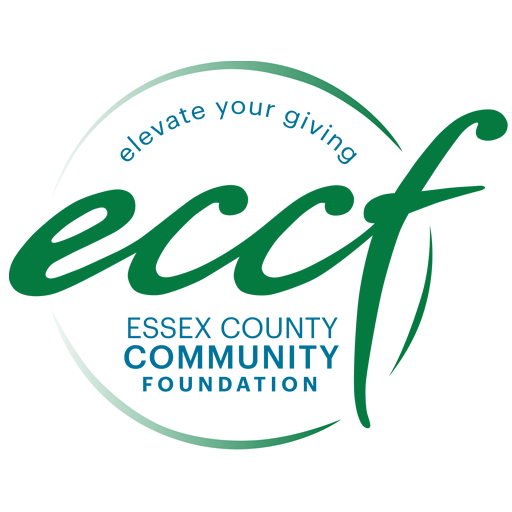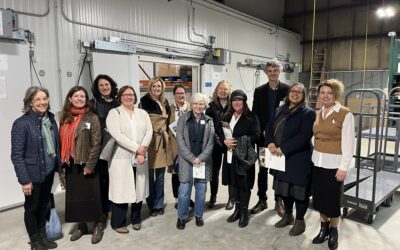During a typical summer, 40 children from Greater Lawrence have the opportunity to spend a week at Windrush Farm in North Andover, one of the oldest therapeutic riding centers in the country.
Through the farm’s Giddy Up & Grow program, not only do the kids learn to ride and care for the ponies, but they are also taught how to harvest vegetables from the farm’s bountiful garden, bake zucchini bread and engage in literacy activities based on stories starring the farm’s fabled residents.
“We open these children’s eyes to things they’ve never seen,” said Janet Nittmann, CEO of Windrush Farm. “In the process, they also build their self-esteem and confidence.”
But the summer of 2020 is shaping up to be anything but typical. And like many other nonprofits that offer summer programming to underserved youth, Windrush – one of this year’s ECCF Greater Lawrence Summer Fund grantees – has had to cancel its traditional programs due to the COVID-19 pandemic.
“The reality is, kids are losing out this summer,” said Josh Miner, a longtime member and Chair of the GLSF committee.
Each summer for three decades, the Greater Lawrence Summer Fund has supported quality summer programming for low-income youth in Greater Lawrence that:
- Enhances social, academic and emotional abilities,
- Discourages unhealthy behaviors by providing safe alternatives and
- Reduces summer learning loss.
“The programs supported by the Greater Lawrence Summer Fund provide so much more than meets the eye,” said Carol Lavoie Schuster, ECCF’s vice president for grants, nonprofits and donor services. “For thousands of children every summer, they open a window of opportunity to learn, create, explore and experience something new and potentially eye-opening.”
This year, the GLSF granted $226,000 to 38 organizations, though it was a process unlike any other in the Fund’s history. Because of the COVID-19 pandemic, nonprofit CEOs, executive directors and program directors were faced with decisions about how and if planned summer programming could continue. And GLSF committee members needed to be in almost constant contact with applicants in order to review proposals being continuously updated by evolving data, information and safety guidelines.
“I think we did a different kind of job than we normally do,” said Miner. “And in the end, we were able to make some important grants.”
Summer programming for low-income youth is critical every year in order to help close the opportunity and achievement gaps that exist between them and their more affluent peers. And thanks to the collaborative nature of the fund, in 2019 alone the GLSF served 8,590 youth.
“We couldn’t do this work without the generosity of our many donors,” said Miner. “Their support is critical to our mission of increasing opportunities for low-income youth and reducing that summer learning gap.”
But this year, traditional summer learning loss is following on the heels of what education experts have coined “COVID Slide,” a result of schools closing three months early and pivoting to distance-learning – a process that shined a light on stark inequities in the educational system. It’s also elevated the vital importance of engaging kids over the summer. But for GLSF committee members making funding decisions, one of the things they kept paramount throughout the grants process was the health and safety of program participants.
“Lawrence is my community,” said Pavel Payano, a Lawrence City Councilor and member of the GLSF committee. “We had to ensure that any program that could still run was doing so without putting kids and their families in harm’s way.”
In the end, some programs supported by GLSF were forced to cancel summer programming altogether, while others were able to design alternative programs that follow new social distancing guidelines.
The Lawrence Public Library, which usually hosts hundreds of kids each summer for story times, craft activities and special events, has pivoted to include virtual programming and safe, outdoor activities that kids can enjoy with their families.
Partnering with the Lawrence Senior Center and the Lawrence Recreation Department, the Library is offering scavenger hunts, virtual story times, outdoor activity and craft kits and a story walk in three of the City’s parks. To support local businesses, they are purchasing all supplies locally and offering prizes in the form of gift certificates to area merchants. This pivot in plans did not come easily, however; it took time, innovation and collaboration.
“Our city has hurt so much, we have to put in the effort,” said Library Director Jessica Vilas Novas, adding, “We’re creative. We don’t have to stop because of a virus.”
She said that while “the crisis has really taken away what the library does at its core,” the silver lining to this necessary pivot in plans is that much of this work can continue to be implemented long after the pandemic is over.
“If it’s successful, I think we can continue to do all of this,” said Novas, who added that what could have been one of the biggest challenges – receiving funding support for alternative plans – was instead met with encouragement and understanding.
In addition to funding nonprofits that were able to alter summer plans to meet new social distancing and health guidelines, GLSF committee members also emphasized the importance of supporting organizations like Windrush that, due to the nature of their programming, could not.
“These programs are so critical to Lawrence youth and we want them to be here for the kids next summer,” explained Miner. “We wanted to let these nonprofits know that we still support them.”
In normal times nonprofits face budget and fundraising challenges. But COVID-19 – which has forced organizations to cancel programming and events – has exacerbated those challenges by slashing revenue needed to cover day-to-day operations.
“We appreciate the GLSF understanding that we still have operating costs,” said Linda Soucy of Methuen Arlington Neighborhood, Inc., which had to cancel its Tenney Street Park Summer Recreation Program, but still received a GLSF grant. “We cannot thank ECCF and the Greater Lawrence Summer Fund enough for their generosity during these trying times.”
It’s a scenario that no one anticipated at the beginning of the pandemic, when grant applications had already been submitted and the term “social distancing” had yet to become part of our everyday vocabulary.
Jadi Taveras, head of school at Esperanza Academy – a small tuition-free, independent middle school for girls from low-income families in Lawrence – recalls back in March cancelling school about two days ahead of the state and gathering his staff for a two-day, intensive planning session for the school year.
“The major adjustment for us was shifting expectations,” he said. “I worry the most about the students who really struggle with social and emotional challenges.”
The GLSF supports Esperanza’s summer STEAM program, part of the school’s extended school year and a requirement for all students. This summer, the program is going virtual and Esperanza is partnering with MIT, Groundwork Lawrence and the Lawrence History Center to provide the curriculum.
“We felt like this would be an invigorating way to engage the students,” said Taveras, who added that having these partnerships helps the school support other nonprofits, provides new experiences for students and gives Esperanza’s educators a chance to catch their breath.
“One of the things I think a lot about is teacher burnout,” he said, noting all the work staff has already devoted to distance learning and preparing contingency plans for the upcoming school
This summer is especially important for Esperanza’s incoming fifth graders, who will receive a gradual introduction to the school through once-a-week meetings over the summer.
“One of the challenges with rising fifth graders is that they all come from different schools and we don’t know what kind of impact COVID has had on them,” said Taveras.
Indeed, the impacts of COVID will continue to be revealed in the weeks and months ahead – on many levels. But if this global crisis has provided us with any benefit – and there are some silver linings as we have seen – one is that it has given nonprofit organizations the chance to reflect on their work.
“I’m hoping that organizations take this time as an opportunity to improve on what they do,” said Payano.
The other thing that GLSF committee members hope people will take away from the experience of living in a COVID-19 world are the very real inequities that it has exposed for low-income families and underserved communities. This spotlight has only underscored the critical nature of the work of the Greater Lawrence Summer Fund and organizations with similar missions.
“I think it’s important for people to understand the genuine value that exists in delivering summer programming to youth in urban areas,” said Payano. “Working together to provide opportunities to kids who might not otherwise have them can help to change their lives.”
For more information about the Greater Lawrence Summer Fund and to see a list of the 2020 grantees, visit this page.
About the Greater Lawrence Summer Fund
For three decades, the Greater Lawrence Summer Fund (GLSF) has been powering opportunities for low-income youth in Greater Lawrence by connecting donors with agencies in need of funding for programs that provide young people with a chance for skill development, personal growth and exposure to new experiences. Learn more here.
About ECCF
The mission of Essex County Community Foundation is to inspire philanthropy that strengthens the communities of Essex County. We do this by managing charitable assets, strengthening and supporting nonprofits and engaging in strategic community leadership. Since 1998, ECCF and its family of more than 230 charitable funds have granted $85 million to nonprofits, schools and students in Essex County and beyond. Our ultimate goal is to have 34 thriving cities and towns in Essex County and to improve the quality of life for the region’s nearly 800,000 residents. Learn more at eccf.org.


